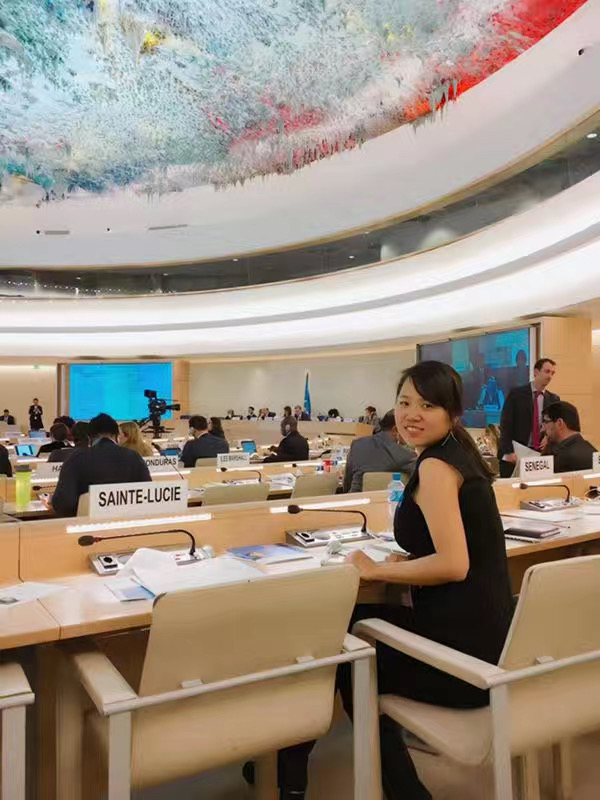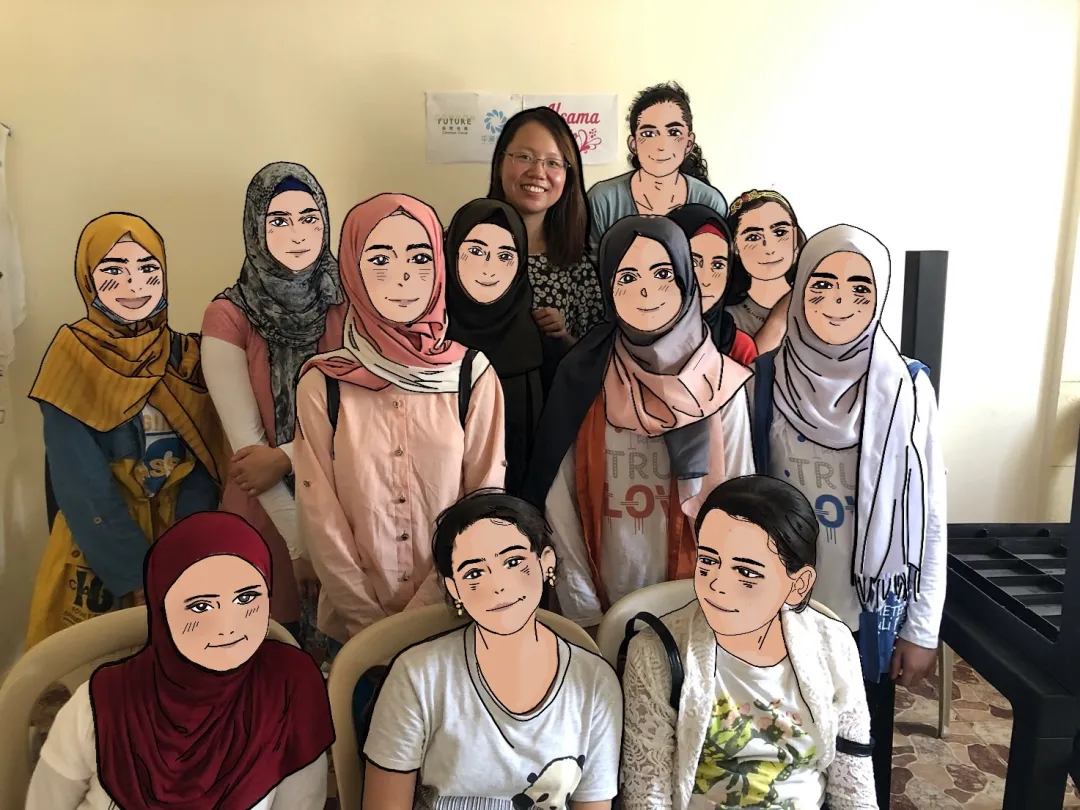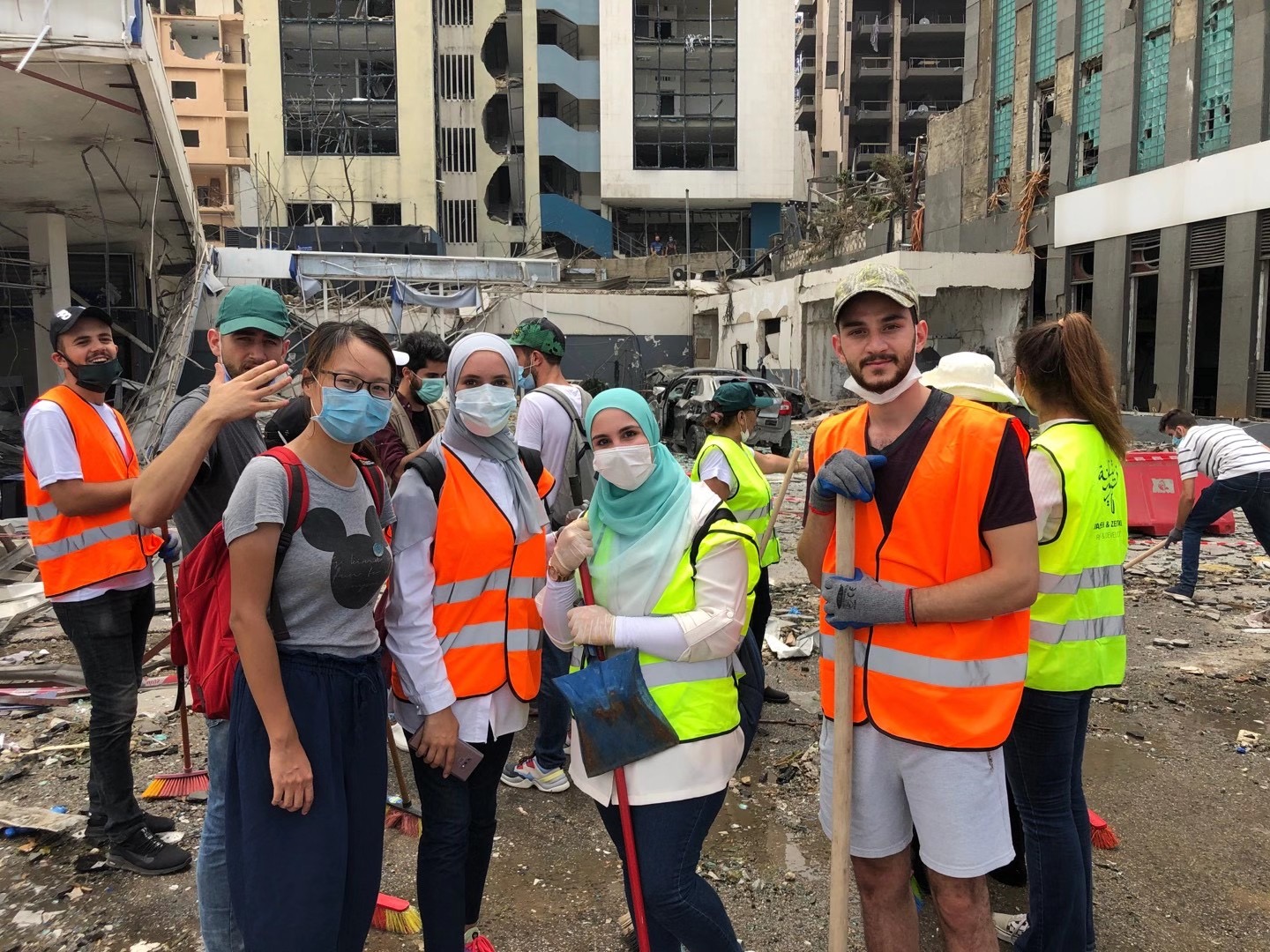209, Expert International Mansion,
Hootun South Road, Haidian District,
Beijing, China
Tel: 010-62928367 | Email: peaceland@peaceland.org.cn
As the leader of the refugee assistance programme, Zhan Weizhen (詹尉珍) served in the Lebanon office of Peaceland Foundation from June 2019 to January 2021. Moving from there, she now oversees our newly established Geneva office, perusing deeper engagement and wider collaborations in global humanitarian work.
How did she at first step into a career of humanitarian profession? Here is her story.

From Commercial Law Firm to NGO
“I did not choose to enter the NGO sector, rather, this path took me."
After finishing a master’s degree in law, she followed her supervisor's suggestions and entered a commercial law firm in Shanghai. However, she always has concerns and passion focusing on human rights, and that made her seek changes. She thought about Zhicheng Public Interest Law, a Chinese umbrella group offering free legal assistance for children, migrant workers, and other vulnerable groups.
In Zhicheng, knowing she is part of the team that works on children’s assistance and welfare instead of international trade disputes, Weizhen felt she was in the right place.
For Weizhen, she does not intend to attach anything extra to explain her motivation to work in NGO. She felt it is just a path that is more suitable for her and make her feel happier.
Working in Lebanon
Yet there is one thing missing: Weizhen also holds a wish to go to the bigger world. During her work on the child protection issues, she attended regular session in the Human Rights Council in Geneva and realised protection of refugee children is one of the main topics globally. Later she got to know that Peaceland Foundation and Common Future Fund were planning to open an office in Beirut. It is the first time a Chinese NGO is setting an office in the Middle East region. She decided to catch this chance.
Funded by the Peaceland Foundation, the Refugee Program operates three types of projects in Alsama and Lighthouse Peace Initiative (LPI) centres in the refugee camps in Beirut: Language courses in English and Chinese; Sewing training and product sales; and Small grants for children.
Weizhen's position required her to design and implement the projects. She went to the centres daily to check the progress of the courses, deal with specific tasks like teaching partners computer skills and fixing the printers to make sure that everything goes on smoothly. She also had to remind partners to write periodical reports and discussed potential project development with them.
Weizhen spent most of her time working with different people, especially with women. For her, this was the most enjoyable part of the work. The partners, girls working at the centres, people on the streets... The helped Weizhen, and her work and accompany also influenced them.
One example was the manager in Alsama Studio. She was not familiar with computers and did not know how to fill forms and reports., With the assistance from Weizhen's team, she learnt quickly and developed managerial skills within one and a half years. Another example was a girl who came to the language course and sewing training. At the beginning she sat alone and did not talk to anyone. As time went by, encouraged by the friendly atmosphere in the centre, she gradually built trust on the others, and the progress on language learning made her more confident as well. In the end, she could introduce the bags she sewed in fluent Chinese, and dance joyfully with the other girls. For Weizhen, these are the special moments.

(Weizhen with the girls in Alsama studio, the photo was edited)
Beirut and Beyond
Peaceland's Lebanon office is set in Beirut, where Weizhen was working and living. It was the first time she set foot in the Middle East and she does not speak Arabic. When asked how she managed to communicate with people, her answer was simply "to respect". The language barriers could be overcome by translation apps, while the more important things in communication are to listen and asking for permission before doing things. “The first step was hard, but we need to be patient”. Later, they also had online volunteers who helped with translation during meetings. Kids on the streets often say "Ching chong" to her, she took it more as a curiosity. “Smiling and being opened helped me to get to know the local and to know their culture before speaking Arabic, and of course I am learning it.”
She also has a calm mindset to deal with all the inconvenient situations, even emergencies. Electricity cut is very common in Lebanon. Weizhen got used to it. “if it was in the evening, I just went to bed earlier; if it happened during the days, well, it was just a bit darker in the rooms". She was there when the Beirut Port Explosion happened. Weizhen was 3 kilometres away from the port. For a second, she thought about leaving, but the next second she started to work on the post-disaster rescue.

(Weizhan led a volunteer group to help the victims of the Beirut Explosion)
Weizhen learnt a lot from the experience in Lebanon and felt fulfilled with her time there. When talking to friends back in China, they said that she seemed happier. She also knows she wants to keep learning and growing, for her career development, and for a better self. Had finished her post in Lebanon, Weizhen now embarking on her journey in Geneva. She has the ambition to follow the cutting edge of the humanitarian field, do more impactful and valuable projects, and go further in the path that took her.
This article is mainly based on two interviews (in Chinese):
https://mp.weixin.qq.com/s/xGonNUzImeJcUaCdB-QFiQ.
https://zhuanlan.zhihu.com/p/396034025
Author: Feng Qian
Editor: Zhan Weizhen, Li Tiange

209, Expert International Mansion,
Hootun South Road, Haidian District,
Beijing, China
Tel: 010-62928367 | Email: peaceland@peaceland.org.cn
© Copyright 2022 Peaceland Foundation 京ICP备 18056266号